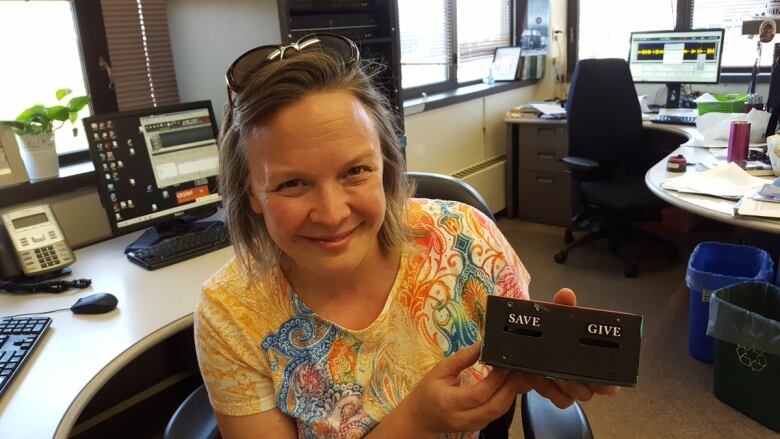How to teach your kids financial responsibility
'It's not just going to come out of mom's purse'

P.E.I. schools will be out for the summer soon, but that doesn't mean kids can't keeplearning.
Mainstreet P.E.I.'s frugal columnist, Liz MacKay, says summer is a good time to teach children financial responsibility and the meaning of a dollar. Especially teens who will have summer jobs.
"They'll have lots of cash flow coming in right now and they don't have to pay for a mortgage or a vehicle payment or anything else. It can kind of be like, 'Woohoo, I'm rich.'"
Manage resources for now, future
Parents should teach their kids to be somewhat financially independent, MacKay said in an interview on Mainstreet P.E.I.
"It's important they learn that if they want some money, it's not just going to come out of mom's purse."
Here are a few tips MacKay gives for teaching children to be financially responsible.
1. Contribute to family trips
MacKay asks her children to contribute some money toward family trips, depending on what they can afford.
"Sometimes they say 50 cents, sometimes they say five dollars. But we find when they help contribute toward that, they take more time to enjoy it and they understand the financial relationship, that it's not just going to be, 'Here you go, take whatever money you want.'"
2. Don't like mom's lunch? Buy your own
MacKay sends a lunch with her kids to school. If they want to buy food at school, or souvenirs, they're expected to pay for it.
That policy was born when the family realized just how much their kids were spending at school out of their parents' money.
3. Be choosy about summer camps
It's important to focus on camps that make sense financially and time-wise, MacKay said.
"We try to make it so we aren't just spending our time being a taxi, driving everyone here and there."
Her kids go to some day camps or swim camps during the summer.
4. Allowance should be earned
MacKay said her family stopped giving an allowance for a while because the kids' work wasn't up to scratch.
"I said to them, 'If this was a job, you would be fired.'"
When her kids need money, they come up with jobs to do.
"Our children have become quite industrious when they want money."
More P.E.I. news
With files from Angela Walker












_(720p).jpg)


 OFFICIAL HD MUSIC VIDEO.jpg)
.jpg)



























































































